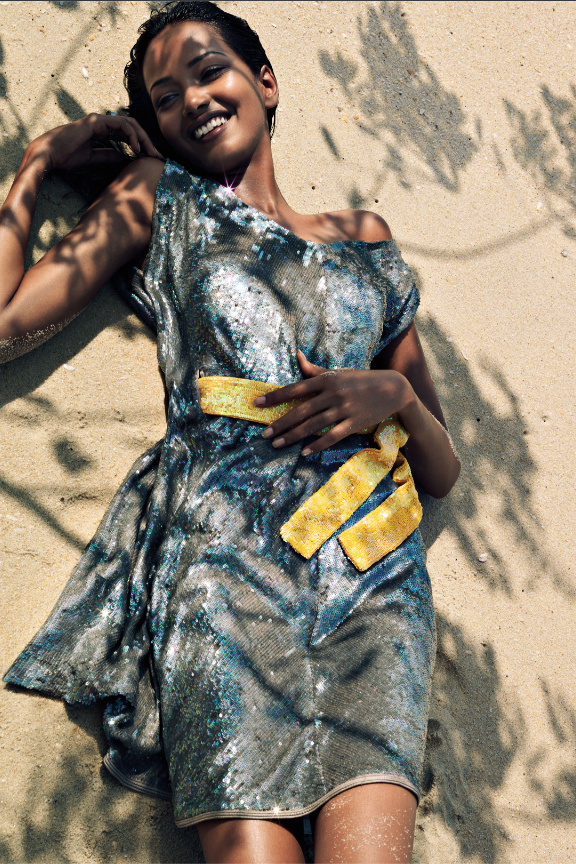While a swipe of red lipstick or a spackle of concealer under the eye can go a long way in increasing your confidence when at work or on a date, it can be counterintuitive if you’re slapping it on while heading for a swim or just after your microneedling treatment. Wearing makeup to the gym already gets a bad rep, but is that the only time to avoid it? We spoke to three experts to find out all the times you need to stay away from makeup.
After a microneedling or laser hair removal treatment
“After a cosmetic or a medical treatment such as micro-needling or laser hair removal, the chances are that the skin is healing. Since it’s more sensitive, we tell our clients to apply SPF religiously and skip makeup for at least 48 hours,” advises Dr Geetika Mittal Gupta, medical director, ISAAC Luxe Clinic. The end goal is to speed up the healing process and stay away from secondary infections.
Before you go to bed
Celebrity makeup artist Marianna Mukuchyan has one advice for all her clients: Always remove all makeup, even if you’re only wearing lipstick. “Focus on the cleanse, tone and nourish routine while you are sleeping. Prep the skin with vitamins and minerals before you hit the bed, so that the body’s restoration process can speed up epidermal cellular rejuvenation,” she says. Even if you’re at a sleepover or staying over at a friends, even a quick face wipe can help take the worst of it off before you actually sleep, she says.
When you’re working out or playing sports
Though it is not an uncommon sight to see primed faces on the treadmill or while shooting hoops outside, it’s best to avoid makeup—especially any form of concealer or foundation while you are exercising. “Our pores tend to open up when we’re working out, and if we have makeup on, it’ll only clogs our pores. Keep your skin clean and only apply moisturiser when needed,” says Dr Gupta. When you wear makeup and exercise, not only are you putting your skin at risk of a breakout (in case the pores get clogged), you’re also preventing your skin from extracting the maximum benefits from your workout. “When you exercise, you sweat and that opens your pores. Sweat carries with it the grime of what’s built up in your pores, and it’s not good if it settles back into your skin,” reminds Mukuchyan.
But it’s not just sweat—your hands might touch a yoga mat, weights or the handlebars of a bike, all of which are breeding grounds for bacteria. If you’re using that same hand to touch your face during the workout, even if it’s only scratch an itch or move your hair back, you could be giving all that bacteria something to cling to—especially if you’re wearing a tacky base.
Makeup artist Sonic Sarvate strongly advises choosing non-comedogenic products, should you absolutely have to use base makeup while playing sports. “Opt for BB Creams and tinted moisturisers that moisturise your skin while giving you coverage, and tinted lip balms instead. MAC Prep + Prime Fix Plus is a lightweight mist of water packed with vitamins and minerals, making it a great product to keep your skin hydrated and refreshed both before or after your workout,” he shares.
When you have an active breakout
“If you’re applying retinoids or salicylic acid especially when you have acne, makeup might irritate your skin further,” says Dr Gupta. “It’s better to apply an acne-patch to cover up acne or pimples than apply makeup if you have a special event to attend,” she adds. Make sure you’re using clean fingers or a brand new makeup sponge for application, as the bacteria on brushes or used sponges can make pimples worse. All three experts also recommend choosing mineral makeup when you’re dealing with active breakouts.
While you’re swimming or at the beach
“Not only will makeup interact with UV rays and chlorine, but it will also eventually get washed away,” recommends Dr Gupta. “The salty sea air is very good for your skin, and you should keep it bare to absorb it,” adds Mukuchyan. Sarvate is quick to add that over the years, technology has helped to develop products. “For instance, sunscreens initially had a lot of ingredients that clogged pores, but now, with new studies and advanced technology, they have been modified to be less clogging. Choosing the right product is key if you have breakouts; avoid using anything that can make them worse, and always consult your dermatologist before instead of engaging in trial and error,” he concludes.
The article was first published in Vogue





